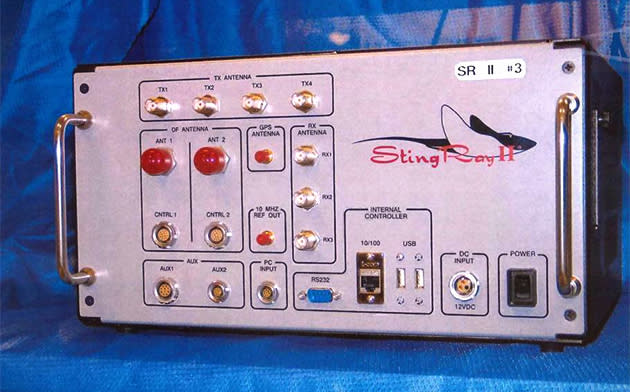FBI says police can disclose Stingray use, but not what they can do

Look, none of us should be surprised that police departments across the country use things like Stingrays -- sophisticated surveillance devices that suck up cell phone communications -- in their investigations. Still, more than a few of those PDs have insisted in court on trying to keep that specialized gear out of the limelight. Consider cases like this one in Baltimore last year, where a police officer was nearly held in contempt for withholding information about cell phone tracking practices; they often hinge on the fact that law enforcement officials entered into non-disclosure agreements with the FBI to keep usage under wraps. Turns out, that's not exactly the full story. According to a statement released by the FBI earlier this morning (and obtained in full by Ars Technica), there really aren't any legal stipulations meant to keep law enforcement from admitting stingrays have been used.
"Defendants," the statement goes on, "have a legal right to challenge the use of electronic surveillance devices, and not disclosing their use could inappropriately and adversely affect a defendant's right to challenge the use of the equipment." Instead, what those NDAs are meant to do is keep people from disclosing the "specific capabilities" of Stingrays (and related surveillance gear with different, less-catchy brand names). Naturally, the Bureau takes this part pretty seriously. A lawsuit filed by the New York Civil Liberties Union against the Erie County Sheriff's Office last year revealed the FBI even reserved the right to ask local PDs to drop cases entirely if the sanctity of the Stingray's capabilities or details on how they were used in investigations fell into peril. Thing is, even that's a moot point now: The press corps has done a fine job of unearthing those capabilities and sharing them with the public at large anyway.
While today's release gives us just a little more insight on the curious relationship between the Feds and local law enforcement where surveillance is concerned, don't think the move will usher in a golden age of transparency. After all, Florida-based Harris Corporation -- also known as the people who make and market the Stingray -- is known to broker non-disclosure agreements with law enforcement agencies themselves, barring them from "discussing, publishing, releasing or disclosing" any information related to its surveillance products.

